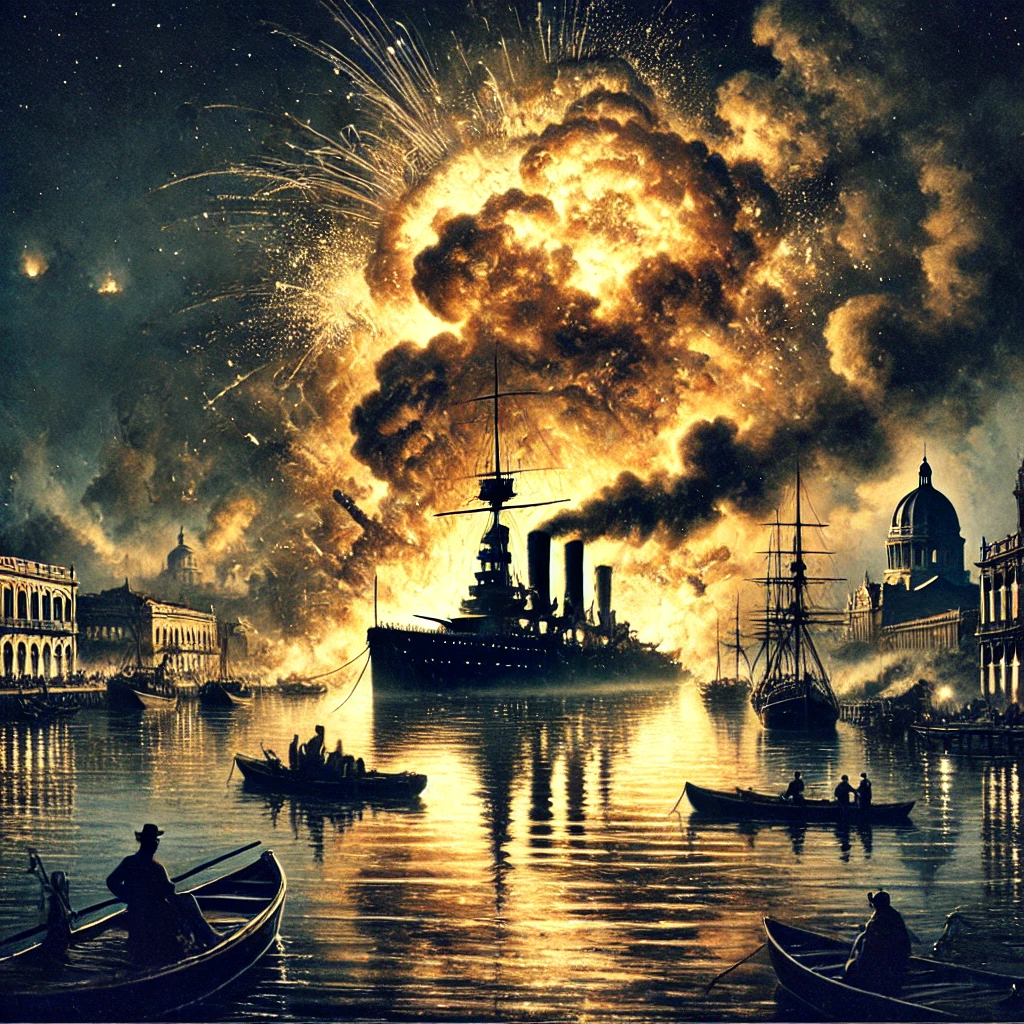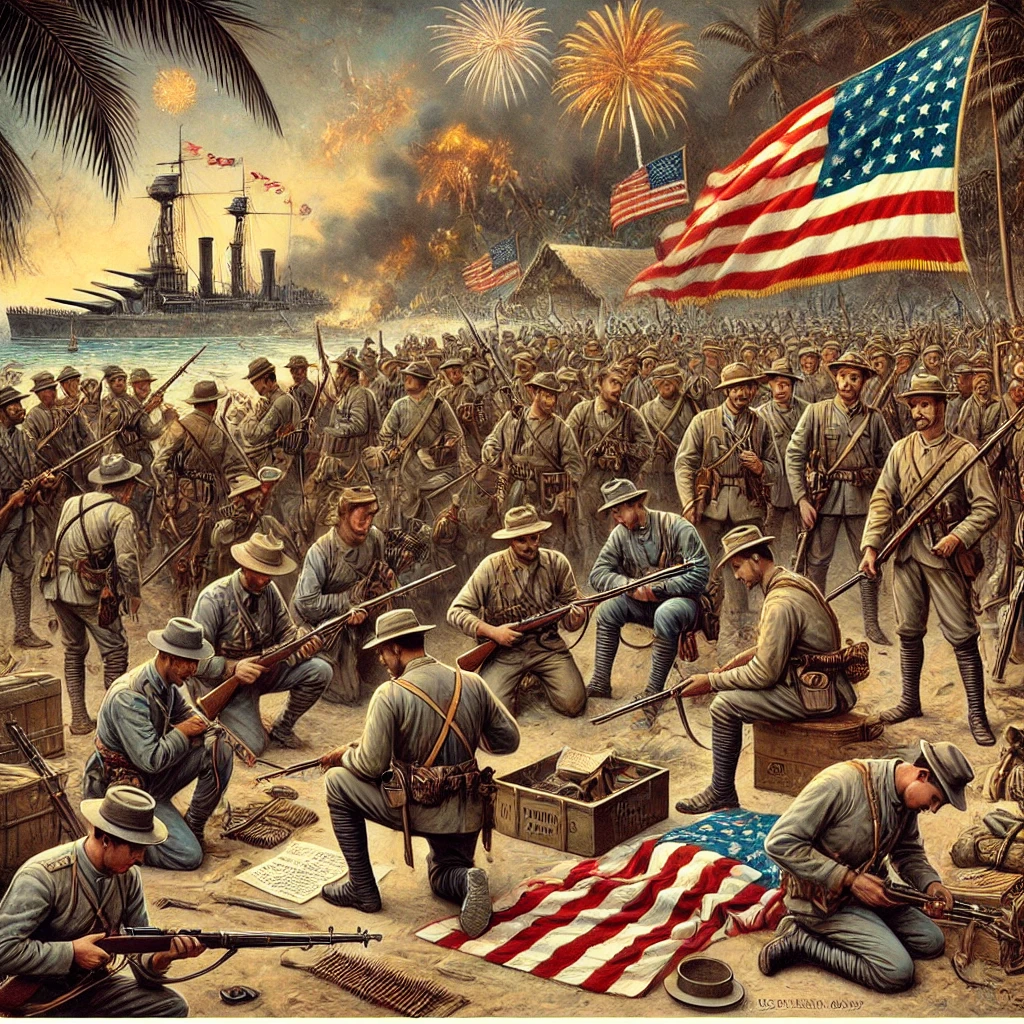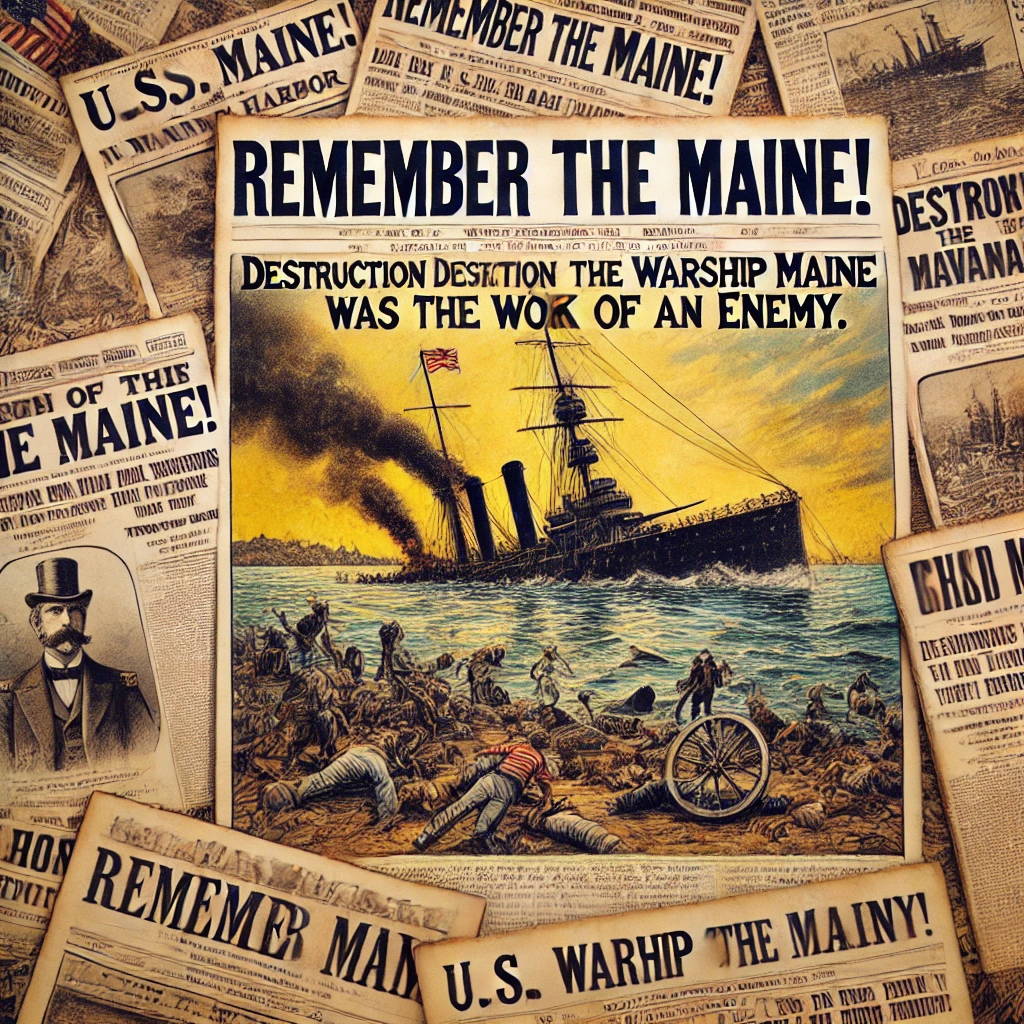A tragic event occurred on February 15, 1898, when the U.S.S. Maine, an American battleship, exploded in Havana Harbor, Cuba, leading to the deaths of 266 sailors. The incident heightened tensions between the United States and Spain, ultimately leading to the Spanish-American War. This pivotal moment not only altered the course of U.S. foreign policy but also marked the nation’s emergence as a global power.

The Fateful Night in Havana Harbor
The U.S.S. Maine had been dispatched to Cuba during a period of escalating unrest as Cuban revolutionaries fought for independence from Spanish rule. Stationed in Havana Harbor ostensibly to protect American interests and citizens, the battleship met a sudden and violent end when a massive explosion ripped through its hull. The blast was so powerful that it caused the ship to sink rapidly, claiming the lives of most of the crew on board. The cause of the explosion was a matter of immediate speculation and remains a topic of historical debate to this day.
At the time, sensationalist journalism, often referred to as “yellow journalism,” played a significant role in shaping public perception. Newspapers owned by William Randolph Hearst and Joseph Pulitzer published dramatic and often exaggerated accounts of the incident, with headlines blaming Spain for the tragedy without conclusive evidence. The rallying cry, “Remember the Maine, to Hell with Spain!” swept across the United States, galvanizing public support for military action.
From Tragedy to Conflict

The explosion of the U.S.S. Maine served as the tipping point in an already tense relationship between the United States and Spain. Although the exact cause of the explosion was never definitively determined—with theories ranging from a mine planted by Spanish forces to an internal accident—the American public and government quickly leaned towards assigning blame to Spain. Diplomatic negotiations faltered, and the United States declared war on Spain in April 1898.
The Spanish-American War was brief but transformative. Fought in both the Caribbean and the Pacific, the conflict resulted in a decisive victory for the United States. The Treaty of Paris, signed in December 1898, ended the war and ceded control of former Spanish territories, including Puerto Rico, Guam, and the Philippines, to the United States. Cuba gained nominal independence, although it remained under significant American influence for years to come.
The Lasting Impact of the U.S.S. Maine Explosion

The repercussions of the U.S.S. Maine explosion extended far beyond the immediate loss of life and the subsequent war. The event marked the United States’ transition from a relatively isolated nation to an imperial power with overseas territories. This shift had profound implications for American foreign policy, setting a precedent for future interventions and expansions.
Moreover, the incident highlighted the power of the media in shaping public opinion and influencing government decisions. The role of yellow journalism in fanning the flames of war demonstrated how narratives could be crafted to serve political and economic interests, a phenomenon that continues to be relevant in the modern era.
Today, the wreckage of the U.S.S. Maine remains a somber monument to the sailors who perished and a symbol of a turning point in American history. The lessons learned from this event—about the consequences of hasty conclusions, the influence of the media, and the complexities of foreign policy—continue to resonate as the United States navigates its role on the global stage.
